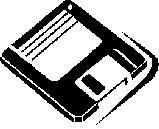The activities on Multimedia Database Systems, include the study of advanced data models, storage techniques, retrieval mechanisms and user interfaces for large multimedia data bases. The data models under study include the object-oriented model and the relational model with appropriate extensions to support multimedia data. We are also investigating content- based search techniques for image data bases. Prototypes of the above are being developed on top of the EXODUS storage manager. In a different direction, we are studying issues involved in the development of multimedia front-ends for conventional, relational data base systems. In particular, mechanisms to support the storage, indexing and retrieval of advanced data types (e.g. images, voice, graphics) are studied, along with the appropriate operators to operate on such data (e.g. map overlay, rotation, etc). Special purpose query processing and optimization techniques are also analyzed in this context. The group participates in the ESPRIT project ALEXANDER that deals with the development of a multimedia database for the cultural heritage of Northern Greece.
The group's efforts on Geographic Information Systems, include the study of new data structures, storage techniques, retrieval mechanisms and user interfaces for large geographic data bases. In particular, we look at specialized, spatial data structures (R-Trees and their variations) which allow for the direct access of the data based on their spatial properties, and not some sort of encoded representation of the objects' coordinates. In addition we develop query processing and optimization mechanisms for queries that involve both geographical and alphanumeric sub-queries, such as "Give me all rivers crossing provinces with population more that 500.000" . Finally we are investigating techniques for the efficient representation of relationships and reasoning in space. The group participates in the ESPRIT Basic Research project AMlJSlNG (Algorithms Models and Service Interfaces for Geography).
In the area of Temporal Database Systems, our research concentrates on two problems:
-
i) the study of algorithms for temporal constraints, and
ii) the development of a model for temporal constraint databases. In the context of the second problem, we concentrate on representation and querying in databases with indefinite and/or infinite temporal data. Our developments can be used for enhancing the representational power of DBMSs for advanced applications like planning, scheduling, project management and medical information systems.
Finally, our work on Advanced Query Processing and Optimization Techniques includes dynamic or parametric query optimization techniques. In most database systems, the values of many important run-time parameters of the system, the data, or the query are unknown at query optimization time. Dynamic, or parametric, query optimization attempts to identify several execution plans, each one of which is optimal for a subset of all possible values of the run-time parameters. We have adopted randomized algorithms as the main approach to this style of optimization which we are enhancing to increase their effectiveness in the optimization task. Experimental results of these enhanced algorithms show that they optimize queries for large numbers of buffer sizes in the same time needed by their conventional versions for a single buffer size, without much sacrifice in the output quantity.
You can see something from the list following by clicking on the appropriate word each time:
 Back to CSD Page
Back to CSD Page

